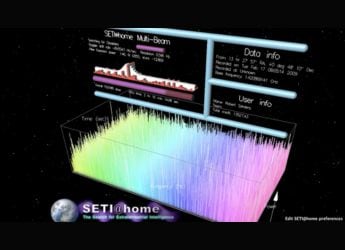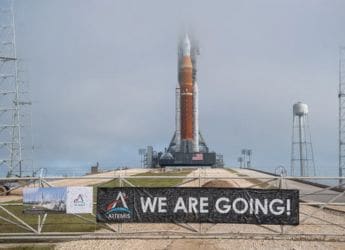- Home
- Science
- Science News
- European Space Agency in Talks with SpaceX for Global Initiative on Space Junk Reduction
European Space Agency in Talks with SpaceX for Global Initiative on Space Junk Reduction
The European Space Agency is discussing with SpaceX to address space junk through the Zero Debris initiative, targeting 2030.

Photo Credit: Tim Hepher and Joey Roulette
SpaceX launched 23 Starlink satellites on May 6, 2024.
The European Space Agency (ESA) is currently in discussions with SpaceX about the possibility of the American aerospace giant joining an international initiative to tackle the ever-growing issue of space debris. ESA has been actively working to address the escalating risks posed by orbital junk, which threatens both operational satellites and future space missions.
ESA Director General Josef Aschbacher shared that the agency's "Zero Debris Charter" has received backing from over 110 countries and organisations, with a shared goal of halting new debris creation by 2030. While SpaceX hasn't yet signed the charter, Aschbacher remains hopeful about progress, noting, “We will keep raising these issues because they are essential.”
Understanding Space Debris
Today, Earth's orbit hosts roughly 18,897 pieces of trackable space junk, according to Harvard astronomer Jonathan McDowell. This debris includes inactive satellites, rocket bodies, and fragments from earlier collisions. Although ESA doesn't regulate space activity, it's committed to fostering international collaboration on this urgent issue. “The fact that we have the charter on the table and that partners are signing up is very encouraging,” Aschbacher added.
The Importance of SpaceX's Involvement
SpaceX, with around 6,300 active satellites out of an estimated 10,300 in low Earth orbit, plays a significant role in this discussion. Its Starlink constellation alone accounts for nearly two-thirds of all operational satellites in this region. New constellations from other companies, including Amazon and Chinese satellite networks, are adding to the congestion, making efforts to curb space debris even more pressing.
Real-World Implications of Space Junk
The risks are far from theoretical. For example, a recent incident saw a Chinese rocket body disintegrate after a collision with debris, forming one of the largest space debris fields recorded. Additionally, past anti-satellite missile tests by various countries have compounded the problem, contributing further to the crowded orbital environment. As ESA continues talks with SpaceX, the focus remains on ensuring a cleaner, safer orbit for all stakeholders in the space sector.
Catch the latest from the Consumer Electronics Show on Gadgets 360, at our CES 2026 hub.
Related Stories
- Samsung Galaxy Unpacked 2025
- ChatGPT
- Redmi Note 14 Pro+
- iPhone 16
- Apple Vision Pro
- Oneplus 12
- OnePlus Nord CE 3 Lite 5G
- iPhone 13
- Xiaomi 14 Pro
- Oppo Find N3
- Tecno Spark Go (2023)
- Realme V30
- Best Phones Under 25000
- Samsung Galaxy S24 Series
- Cryptocurrency
- iQoo 12
- Samsung Galaxy S24 Ultra
- Giottus
- Samsung Galaxy Z Flip 5
- Apple 'Scary Fast'
- Housefull 5
- GoPro Hero 12 Black Review
- Invincible Season 2
- JioGlass
- HD Ready TV
- Laptop Under 50000
- Smartwatch Under 10000
- Latest Mobile Phones
- Compare Phones
- Tecno Spark Go 3
- iQOO Z11 Turbo
- OPPO A6c
- Samsung Galaxy A07 5G
- Vivo Y500i
- OnePlus Turbo 6V
- OnePlus Turbo 6
- Itel Zeno 20 Max
- Lenovo Yoga Slim 7x (2025)
- Lenovo Yoga Slim 7a
- Lenovo Idea Tab Plus
- Realme Pad 3
- Garmin Quatix 8 Pro
- NoiseFit Pro 6R
- Haier H5E Series
- Acerpure Nitro Z Series 100-inch QLED TV
- Asus ROG Ally
- Nintendo Switch Lite
- Haier 1.6 Ton 5 Star Inverter Split AC (HSU19G-MZAID5BN-INV)
- Haier 1.6 Ton 5 Star Inverter Split AC (HSU19G-MZAIM5BN-INV)

















